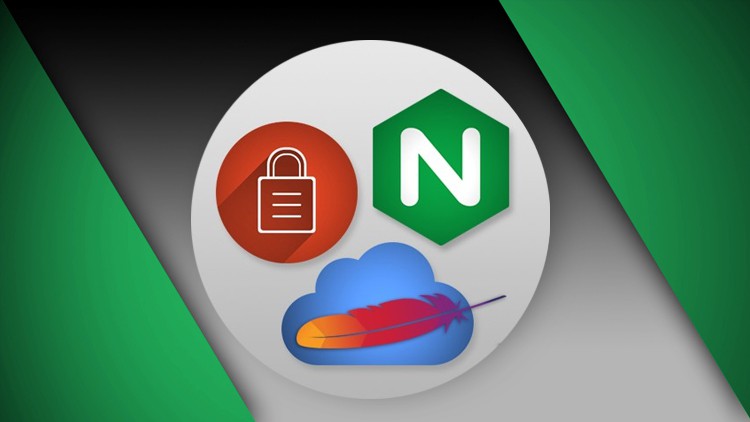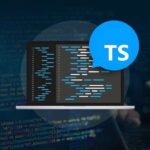
Set up, Configure, and Safe NGINX & Apache on an Ubuntu Server utilizing Digital Ocean & Let’s Encrypt SSL
 Deploying a digital server on Digital Ocean
Deploying a digital server on Digital Ocean
 Working with dynamic, static and floating IPs
Working with dynamic, static and floating IPs
 Utilizing Terminal for distant authentication
Utilizing Terminal for distant authentication
 Putting in and configuring LAMP Stack on Ubuntu 18.04
Putting in and configuring LAMP Stack on Ubuntu 18.04
 Testing PHP
Testing PHP
 Internet hosting A number of Domains on one Apache Digital Server
Internet hosting A number of Domains on one Apache Digital Server
 Configuring Digital Host Information and Directives
Configuring Digital Host Information and Directives
 DNS Zone File Configuration
DNS Zone File Configuration
 Understanding the distinction between Apache & NGINX
Understanding the distinction between Apache & NGINX
 Putting in NGINX on a Digital Ocean Droplet or any Digital Server of your selection
Putting in NGINX on a Digital Ocean Droplet or any Digital Server of your selection
 Modifying the NGINX Block Configuration file for internet hosting Web sites
Modifying the NGINX Block Configuration file for internet hosting Web sites
 Putting in important parts on NGINX comparable to MySQL, PHP & PhpMyAdmin
Putting in important parts on NGINX comparable to MySQL, PHP & PhpMyAdmin
 Securing PhpMyAdmin utilizing symbolic hyperlinks and NGINX’s in-built authentication gateway
Securing PhpMyAdmin utilizing symbolic hyperlinks and NGINX’s in-built authentication gateway
 Securing your hosted web sites with free SSL utilizing Certbot & Let’s Encrypt
Securing your hosted web sites with free SSL utilizing Certbot & Let’s Encrypt
 Putting in and Configuring WordPress in your NGINX Server
Putting in and Configuring WordPress in your NGINX Server
 Varieties of SSL Certificates
Varieties of SSL Certificates
 How SSL Certificates Work
How SSL Certificates Work
 SSL Certificates Standing Studies
SSL Certificates Standing Studies
 Redirect all Area Variations to HTTPS
Redirect all Area Variations to HTTPS
Welcome to our newest course, which is able to information you thru the method of putting in, securing, and configuring NGINX or Apache on an Ubuntu net server. Additionally, you will study to encrypt all net visitors, utilizing a Free SSL certificates from Let’s Encrypt.
APACHE Part:
This course begins with exploring essentially the most broadly used net server know-how accessible, Apache. Statistics present that Apache is used to run over 65% of all net servers around the globe. Understanding the right way to work with Apache, is an instrumental a part of the online improvement course of. College students will study the next key ideas:
- Deploying a digital server on Digital Ocean
- Working with dynamic, static and floating IPs
- Utilizing Terminal for distant authentication
- Putting in and configuring LAMP Stack on Ubuntu 18.04
- Testing PHP
- Internet hosting A number of Domains on one Apache Digital Server
- Configuring Digital Host Information and Directives
- DNS Zone File Configuration
NGINX Part:
NGINX is now thought-about essentially the most highly effective, environment friendly, and safe net server know-how used to host net purposes of all sizes and complexity. The software program is open-source, and is designed for max efficiency and stability. It additionally goals to right most of the short-falls of Apache, in terms of delivering content material to your finish person. NGINX can be utilized for net serving, reverse proxying, caching, load balancing, media streaming, and rather more.
The NGINX Part of this course will allow you to perceive the next key ideas:
- Understanding the distinction between Apache & NGINX
- Putting in NGINX on a Digital Ocean Droplet or any Digital Server of your selection.
- Modifying the NGINX Block Configuration file for internet hosting Web sites
- Putting in important parts on NGINX comparable to MySQL, PHP & PhpMyAdmin
- Securing PhpMyAdmin utilizing symbolic hyperlinks and NGINX’s in-built authentication gateway.
- Securing your hosted web sites with free SSL utilizing Certbot & Let’s Encrypt
- Putting in and Configuring WordPress in your NGINX Server
SSL Certificates – Let’s Encrypt
This part of the course gives an in-depth look into the function of SSL certificates in terms of server safety and net visitors encryption. We begin with a radical introduction which incorporates exploring several types of certificates and the way they work. From there, college students create a droplet on Digital Ocean and configure their very own free SSL certificates utilizing Let’s Encrypt Certificates Authority. This part of the course combines theoretical and hands-on coaching. College students have the chance to observe among the ideas explored within the earlier two sections, whereas additionally studying about free SSL Certificates, comparable to Let’s Encrypt.
English
Language
Apache Internet Server Configuration
Deploying a Digital Server on Digital Ocean
Creating and Attaching a Floating IP
Intro to Terminal and Root Person Authentication
Apache Set up and Testing
Putting in MySQL Database Administration System
Putting in and Testing PHP
Putting in PhpMyAdmin for Database Administration
Introduction to Digital Hosts
Listing Construction, Permissions and Check Information
Configuring Digital Host Information and Directives
Identify Server Configuration
DNS Zone File Configuration and Testing
Putting in SSL for every Area utilizing Lets Encrypt
Abstract and Subsequent Steps
NGINX Internet Server Configuration
Apache vs NGINX
Historical past of Apache
Benefits of NGINX
Deploying a Droplet on Digital Ocean
Attaching a Floating IP
Connecting to your Digital Server
Set up and Configure NGINX
Set up and Configure MySQL on NGINX
Set up and Configure PHP on NGINX
Making a PHP Check File
Modifying Area Identify Servers
Configuring DNS Zone Information
Updating the NGINX Block File Configuration
Putting in Lets Encrypt SSL on NGINX
Putting in PhpMyAdmin
Securing PhpMyAdmin with Symbolic Hyperlinks
Securing PhpMyAdmin with Authentication Gateways
Enabling Authentication Gateways
Introduction to WordPress
Making a Database for WordPress
Putting in PHP Extensions for WordPress
NGINX Block Configuration for WordPress
Downloading WordPress
WordPress Configuration
WordPress Setup
Bonus: SSL Certificates Explored + Apply Challenge
Introduction to SSL Certificates
Conventional vs. Digital Certificates
Varieties of SSL Certificates
How SSL Certificates Work
Acquiring an SSL Certificates
Introduction to Lets Encrypt
Server Preparation
Area Identify Server Administration
Introduction to Digital Ocean
Droplet Configurations
Making a Droplet
Set up PuTTY-Terminal and Join
Set up LAMP Stack – Apache, MySQL, PHP
Configure DNS on Digital Ocean
Droplet Fundamental Configurations
Putting in Lets Encrypt
SSL Certificates Standing Studies
Redirect all Area Variations to HTTPS
Auto Renewal with cron jobs
The post NGINX, Apache, SSL Encryption – Certification Course appeared first on destinforeverything.com.
Please Wait 10 Sec After Clicking the "Enroll For Free" button.








